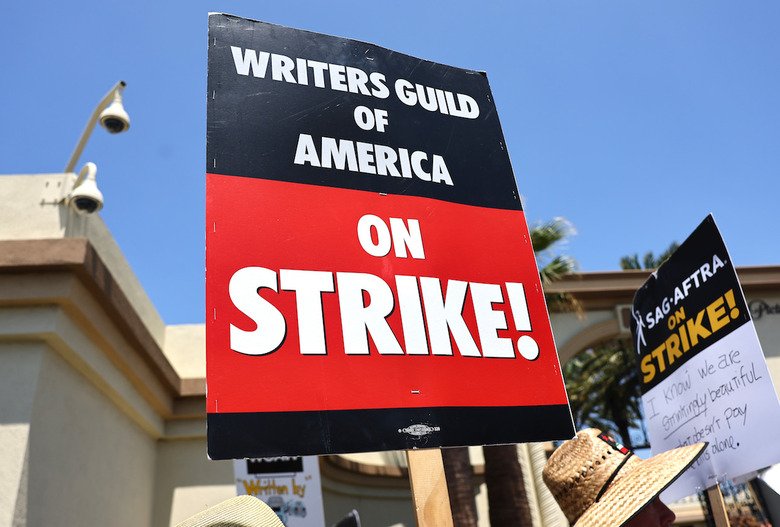Writers Strike Update: AMPTP Makes Counterproposal To WGA, With Negotiations Set To Continue Next Week
The Writers Guild of America (WGA) and the Alliance of Motion Picture and Television Producers (AMPTP) resumed negotiations on Friday, and we're seeing our first signs of progress, with the AMPTP making a counterproposal to the WGA's most recent contract offer.
"Your Negotiating Committee received a counterproposal from the AMPTP today," the WGA said in an email to its members. "We will evaluate their offer and, after deliberation, go back to them with the WGA's response next week."
The guild added that it won't be providing constant updates: "Sometimes more progress can be made in negotiations when they are conducted without a blow-by-blow description of the moves on each side and a subsequent public dissection of the meaning of the moves. That will be our approach, at least for the time being, until there is something of significance to report, or unless management uses the media or industry surrogates to try to influence the narrative."
But "the Guild always has the right to communicate with our members and will do so when we think there is news you need to know," the email noted.
The return to the negotiating table was announced Thursday, six days after the WGA and the AMPTP first sat down for an exploratory meeting about resuming talks between the writers and the studios.
When the strike first began, TVLine heard from multiple sources that the guild was steeled to go at least six months if that's what was needed to make any headway on their multiple asks.
At the center of the negotiation: an acknowledgment of, and correcting for, the way that streaming has affected the work, compensation and working conditions of writers. "Over the past decade, the companies embraced business practices that slashed our compensation and undermined our working conditions," the Writers Guild of America West wrote in a tweet. "We are asking to restore writer pay & conditions to reflect our value to this industry. The survival of our profession is at stake."
Some of the association's demands include increased residuals for reuse markets, the reduction of "mini writers rooms" that greatly diminish the size of TV writing staffs, increased contributions to pension plans and health funds, and standardized compensation and residual terms for features released either theatrically or via streaming. In addition: enacted measures to combat discrimination and harassment and promote pay equity, and a strengthened regulation of options and exclusivity in television writer employment contracts.
